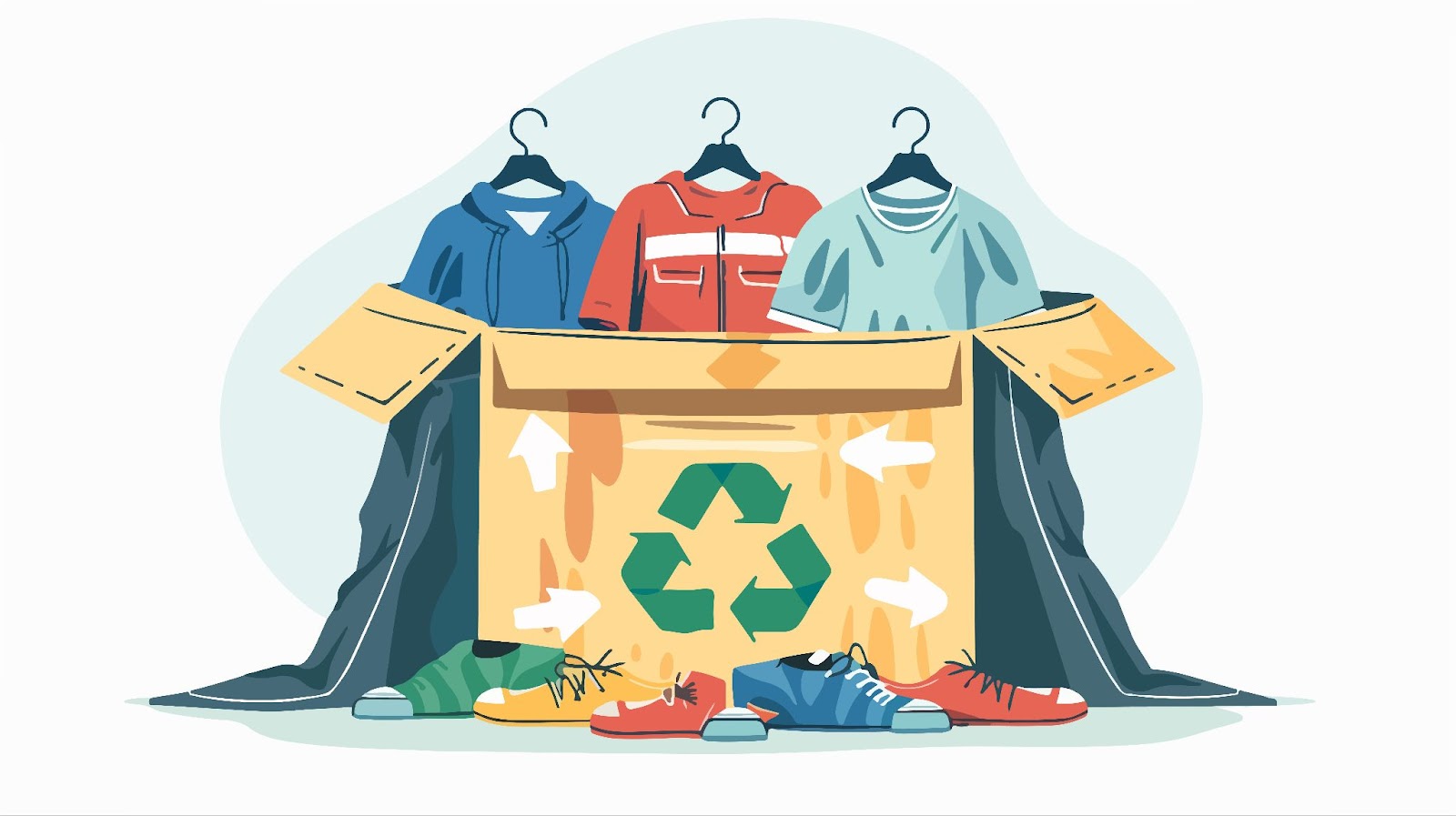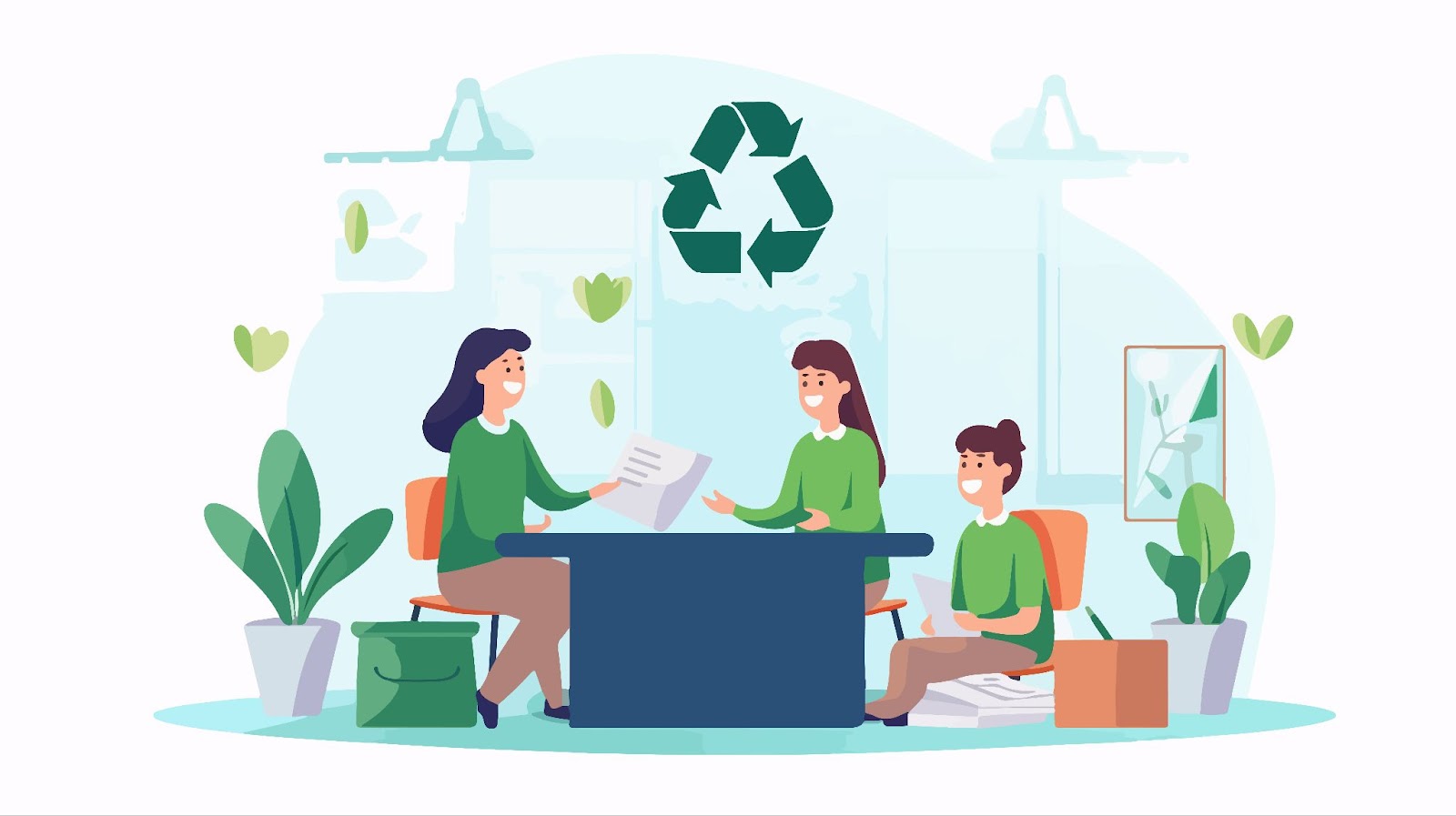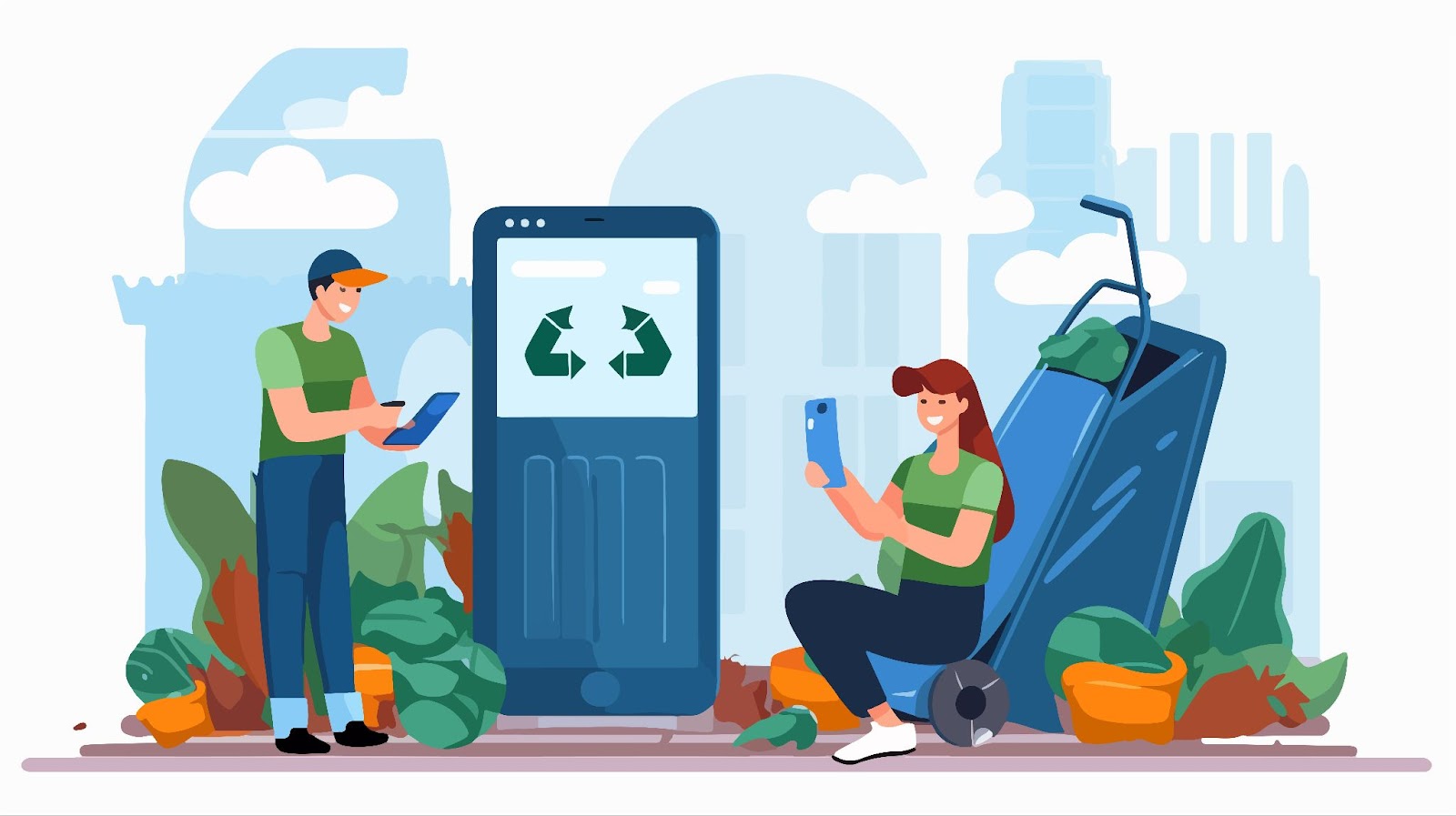207, Agarwal City Mall, Rani Bagh, Pitampura, New Delhi - 110034

207, Agarwal City Mall, Rani Bagh, Pitampura, New Delhi - 110034
Mon - Sat 9:00 am to 6:00 pm

Recycling is a crucial aspect of waste management, and it's more important than ever for businesses and individuals to take active steps toward efficient waste management. Whether it's household waste management, e-waste recycling or corporate waste solutions, adopting effective recycling practices not only reduces environmental impact but also contributes to the local economy. Here, we provide practical tips for managing waste efficiently with a focus on different waste types and recycling services.

Proper waste management starts with effective segregation. By separating your waste into categories such as e-waste, paper, plastics, metals, organic waste, and textiles, you can ensure that the recycling company can process them efficiently. For instance, e-waste recycling in Delhi requires separate handling compared to food waste or household waste management.

To handle waste efficiently, it’s essential to partner with a reliable waste management company that provides comprehensive waste collection and recycling services. In Delhi, many companies offer waste collection services specifically tailored to household, corporate, and industrial recycling needs.

Adopting the 3 R's is the foundation of efficient waste management:

Electronic waste or e-waste is one of the fastest-growing types of waste and it needs specialized handling. Many items like old phones, computers, and batteries contain hazardous materials that can harm the environment if not disposed of correctly.

Businesses, especially those in the manufacturing, textiles and food industries, generate significant waste. Industrial recycling services are crucial for these sectors to manage waste efficiently and comply with regulations.

Effective household waste management starts at home. Encourage family members to participate in recycling efforts by creating awareness about the importance of separating waste. Use compost bins for organic waste like food scraps and garden waste.

Businesses play a critical role in waste management. Whether it's office paper waste, packaging materials, or food waste from cafeterias, implementing recycling practices within corporate environments is essential for reducing the ecological footprint.

Food waste is a major component of household and commercial waste, particularly in the restaurant and hospitality sectors. Instead of sending food waste to landfills, composting is an eco-friendly alternative that turns waste into valuable compost.

Textile waste, including old clothes and fabric scraps, is a significant environmental concern. Instead of discarding textiles, recycling them can save resources and reduce the environmental impact of the fashion industry.

Adopting eco-friendly waste management practices is essential for reducing your environmental impact. For businesses, this might mean opting for biodegradable packaging, reducing plastic use, or implementing sustainable office practices.

All areas have specific regulations for waste disposal and recycling. Staying informed about these regulations ensures that you remain compliant and can take advantage of recycling programs and services available

A sustainable approach to waste management requires collective action. Educating employees, community members, and families about the importance of waste segregation and recycling can lead to better waste management practices overall.

Whether you're managing waste at home or running a business, investing in the right infrastructure can significantly improve your recycling efforts. This might include compost bins, recycling containers, or even machinery for industrial recycling services.

To effectively manage waste, it’s important to set goals and track progress. Whether it’s reducing food waste, increasing the amount of e-waste recycled, or managing industrial waste more efficiently, monitoring your efforts helps ensure success

Leveraging technology can enhance your recycling efforts. Smart bins, apps for waste tracking, and digital platforms that connect you with recycling services are becoming increasingly available, making it easier to manage waste efficiently.
Have any questions?
+91-9667992118Lorem ipsum dolor sit amet nsectetur cing elituspe ndisse suscipit sagitis leo sit.